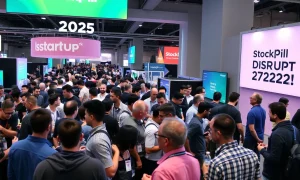The traditional MBA-to-VC pipeline faces unprecedented challenges as venture capital firms increasingly prioritize technical expertise over business credentials. Recent data reveals a significant shift in hiring patterns that could reshape career paths for aspiring investment professionals.
The Current State of VC Hiring MBAs
Top business schools continue placing graduates into venture capital roles, but the numbers tell a changing story. Harvard placed 50 of its 1,004 MBA graduates into VC positions in 2024, with median starting salaries reaching $177,500. Similarly, Stanford placed approximately 30 graduates from its smaller class. However, the overall percentage of mid-career venture professionals holding MBAs has dropped from 44% in the early 2000s to just 32% today, according to Stanford professor Ilya Strebulaev’s research.
Why Technical Expertise Gains Priority
Venture capital’s expansion into specialized sectors drives the changing hiring preferences. Firms now actively seek professionals with:
- AI and machine learning expertise from companies like OpenAI
- Hardware and engineering backgrounds from firms such as SpaceX
- Deep technical domain knowledge in emerging technologies
- Operational experience in scaling technical products
This shift reflects the industry’s evolution beyond traditional investment sectors into more technically complex domains.
The Financial Reality for MBA Candidates
Despite changing hiring patterns, student interest remains strong. Stanford’s VC club boasts 600 members out of approximately 850 MBA students. These students invest significantly in their education, with top MBA programs costing over $200,000. The persistence of student interest despite market changes suggests a lag between industry evolution and student awareness.
Recruiter Perspectives on VC Hiring Trends
Executive recruiter Will Champagne confirms the shifting landscape, stating, “There is less appetite for MBAs currently.” This sentiment echoes across the industry as firms recognize that technical evaluation capabilities often outweigh traditional financial modeling skills in today’s deal environment.
The Future of VC Talent Acquisition
The venture capital industry will likely continue balancing traditional business acumen with technical expertise. Firms increasingly value candidates who combine both skill sets, creating opportunities for hybrid professionals who understand both business fundamentals and technical complexities.
Frequently Asked Questions
Are MBAs still valuable for venture capital careers?
Yes, MBAs remain valuable but now compete with technical expertise. Firms increasingly seek candidates with specific domain knowledge in addition to business fundamentals.
Which technical backgrounds are most valuable for VC roles?
AI, machine learning, hardware engineering, and deep tech experience currently command premium value in venture capital hiring.
How much do VC professionals typically earn?
Median starting salaries for MBA graduates entering VC roles average $177,500, though compensation varies significantly based on firm size and individual experience.
Should aspiring VC professionals still pursue MBAs?
MBAs can provide valuable networking and foundational skills, but candidates should complement business education with technical knowledge and industry-specific experience.
How has VC hiring changed in recent years?
Hiring has shifted from predominantly MBA-focused to increasingly technical, with firms recruiting directly from technology companies rather than exclusively from business schools.
What skills do VC firms value most today?
Firms now prioritize technical evaluation capabilities, domain expertise, and operational experience alongside traditional financial analysis and deal-making skills.








